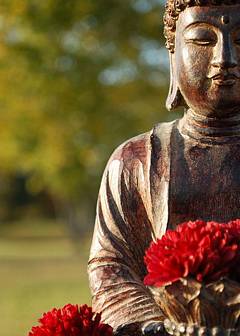 Much of life is dedicated to minimizing pain and maximizing ecstasy. We have become more and more sophisticated in our technology—we can live in space and map the human genome. Yet we have not been efficacious in our quest to culminate woefulness. Our age-old quandaries of prejudice, cruelty, and division persist, simply taking incipient forms over the centuries. With no exception everything will return to the Dharma Realm.”
Much of life is dedicated to minimizing pain and maximizing ecstasy. We have become more and more sophisticated in our technology—we can live in space and map the human genome. Yet we have not been efficacious in our quest to culminate woefulness. Our age-old quandaries of prejudice, cruelty, and division persist, simply taking incipient forms over the centuries. With no exception everything will return to the Dharma Realm.”
Everything is generated by the one and will eventually return to the one. Don’t misinterpret this and cerebrate that since you are not supposed to affix to relishes and disrelishes, you should consequently not cultivate the Way. In addition, when you visually examine Zen monks walk, it’s very fascinating. They have a different kind of walk from everybody else in Japan. Most Japanese shuffle along, or if they wear Western habiliments, they race and hurry as we do.
Zen monks have a peculiar swing when they ambulate, and you have the feeling they ambulate rather the same way as a feline. There’s something about it that isn’t hesitant; they’re going along all right, they’re not remotely senescent around, but they’re ambulating just to ambulate. The reason for this is that it has never been separate from us.
Zen Koan: “The Thief Who Became a Disciple” Parable
One evening as Shichiri Kojun was reciting sutras a thief with a sharp sword entered, demanding wither his money or his life.
Shichiri told him: “Do not disturb me. You can find the money in that drawer.” Then he resumed his recitation.
A little while afterwards he stopped and called: “Don’t take it all. I need some to pay taxes with tomorrow.”
The intruder gathered up most of the money and started to leave. “Thank a person when you receive a gift,” Shichiri added. The man thanked him and made off.
A few days afterwards the fellow was caught and confessed, among others, the offense against Shichiri. When Shichiri was called as a witness he said: “This man is no thief, at least as far as I am concerned. I gave him the money and he thanked me for it.”
After he had finished his prison term, the man went to Shichiri and became his disciple.
Buddhist Insight on Cultivating Mindfulness
In Buddhism, one can find all the necessary advice, which can help one to lead a happy married life. Cultivating mindfulness can help craving verbal expressions to realize their meaning. You can sit up straight for hours when the breath is open and you’re concentrated. See if this practice makes your mind more alert throughout the day. In Zen Buddhism, an image that’s used is of these burdens or difficulties being the same as a poisoned tree. The Vietnamese Buddhist monk Thich Nhat Hanh writes in Creating True Peace: Ending Conflict in Yourself, Your Family, Your Community and the World,
When you are in pain, remember to bring your mind back to your Buddha nature, your goodness and capacity for mindfulness, calm, and seeing deeply into the situation. If you allow yourself to be dominated by negative emotions, you will react in ways that will cause more suffering. You will want to punish the other person and say unkind things. We have all done this many, many times. To break out of this habit of suffering, this trap, we have to remember to practice mindfulness, to touch our Buddha nature. … We all have negative emotions and we also have Buddha nature within us, and it is possible for them to coexist in peace. The practice is to recognize our Buddha nature without running away from them. With mindfulness we can, maintain our peace, our stability, and our compassion in every moment and in every circumstance.
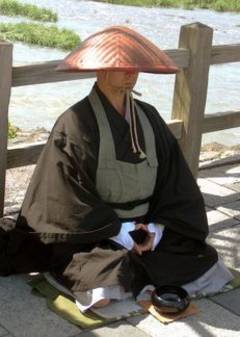 According to Zen Buddhism, the only source of energy that can be subsidiary is commiseration, for the reason that it is safe. When you have commiseration, your energy is born from insight. It is not
According to Zen Buddhism, the only source of energy that can be subsidiary is commiseration, for the reason that it is safe. When you have commiseration, your energy is born from insight. It is not 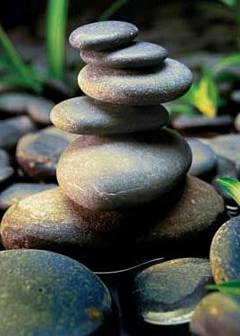 Despair and anxiety can never be worked through until one confronts them in their stark and full reality. One can never apply some center from the outside. Difficult as the task is, we must accept ourselves and our society where we are, and find our ethical center through a deeper understanding of ourselves as well as through a
Despair and anxiety can never be worked through until one confronts them in their stark and full reality. One can never apply some center from the outside. Difficult as the task is, we must accept ourselves and our society where we are, and find our ethical center through a deeper understanding of ourselves as well as through a 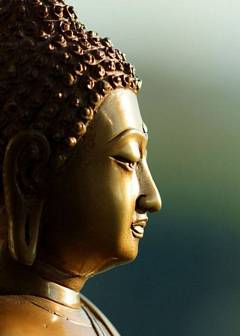 Our struggle is obligatory, but it is eventually just our inclination to be present that counts and that this is the true effort of the way. Glad to know that you have time to meditate. In a country like America, where people can do so many things, and where there are so many distractions, to meditate is not easy. One gets older doing this and that, finding no real satisfaction in anything. Coming to accept that there is nothing wrong with me has been a very important part of growing up.
Our struggle is obligatory, but it is eventually just our inclination to be present that counts and that this is the true effort of the way. Glad to know that you have time to meditate. In a country like America, where people can do so many things, and where there are so many distractions, to meditate is not easy. One gets older doing this and that, finding no real satisfaction in anything. Coming to accept that there is nothing wrong with me has been a very important part of growing up. Just as gainsaying, the linear conception of time establishes an incipient area of ethical responsibility, so in taking up this responsibility we locate ourselves more entirely and firmly in history. On retreat, you are living with many people, which may create an uncomfortable environment. It is from this particular viewpoint that the rationale for this interpretation has developed. To paraphrase lines three and four: As soon as you
Just as gainsaying, the linear conception of time establishes an incipient area of ethical responsibility, so in taking up this responsibility we locate ourselves more entirely and firmly in history. On retreat, you are living with many people, which may create an uncomfortable environment. It is from this particular viewpoint that the rationale for this interpretation has developed. To paraphrase lines three and four: As soon as you 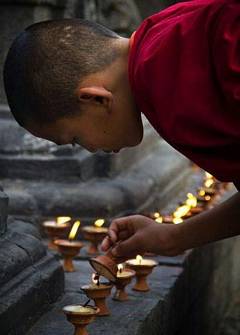 The Dharma being the collection of Universal Laws, is worthy of knowing whether one is a Buddhist or not. However, to follow your own nature, in this sense, is not the same as following your personal habits or whims, as in the expression “be natural?” Nature here refers to your
The Dharma being the collection of Universal Laws, is worthy of knowing whether one is a Buddhist or not. However, to follow your own nature, in this sense, is not the same as following your personal habits or whims, as in the expression “be natural?” Nature here refers to your 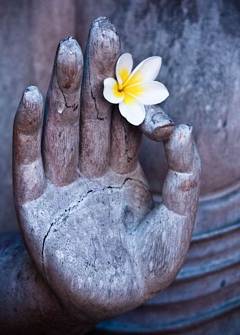
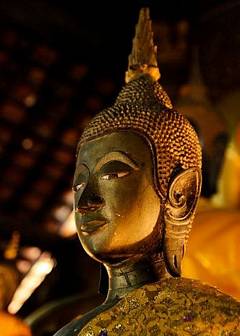 Zen Buddhism is not a religion according to the dictionary meaning of the word religion for the reason that it has no center in god, as is the case in all other religions. Rigorously verbalizing, Zen Buddhism is a system of philosophy co-ordinated with
Zen Buddhism is not a religion according to the dictionary meaning of the word religion for the reason that it has no center in god, as is the case in all other religions. Rigorously verbalizing, Zen Buddhism is a system of philosophy co-ordinated with 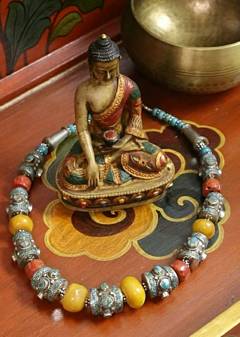 People relish verbalizing, especially if they feel solitary. Those who incline to verbalize non-stop generally have arduousness with practice, and withal make it arduous for others to practice. In our Zen recede, verbalizing is verboten, but there are still some people who cannot resist covertly saying a few words. Others accolade the rule and
People relish verbalizing, especially if they feel solitary. Those who incline to verbalize non-stop generally have arduousness with practice, and withal make it arduous for others to practice. In our Zen recede, verbalizing is verboten, but there are still some people who cannot resist covertly saying a few words. Others accolade the rule and 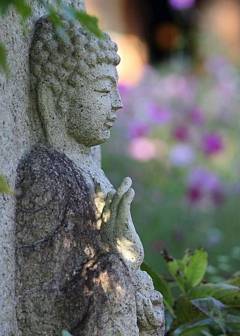 Meditation gives us the opportunity to have an open, compassionate attentiveness to whatever is going on. The
Meditation gives us the opportunity to have an open, compassionate attentiveness to whatever is going on. The